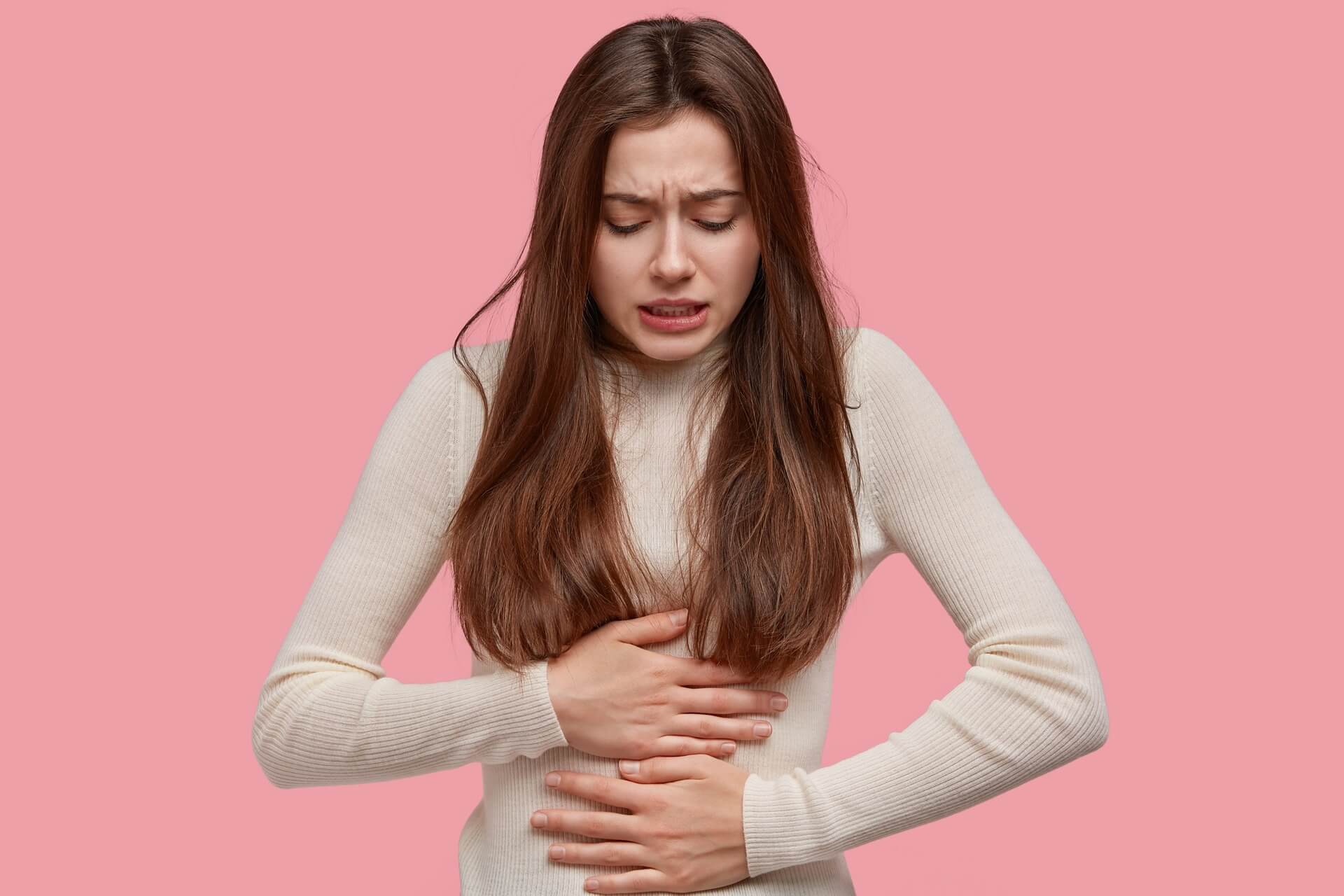Copyright © VSM Pharmacy Limited. All rights reserved. vsmpharmacy.co.uk is a trading name of VSM Pharmacy Limited. Registered office: 124 Frimley Road, Camberley, Surrey, United Kingdom, GU15 2QN. Registered in England: company number 12182298.

Period pain is very common. But did you know in a survey carried out by Wellbeing of Women over half of the 3000-woman surveyed said they didn’t think their symptoms were taken seriously? That’s despite the fact that some women need to take time off work. Many other women wish they could, but don’t.
Just what causes period pain and what can you do to relieve the painful symptoms? In this short guide, we’ll talk about the causes of painful periods and give you some tips about medication and other ways to relieve the pain.
The medical term for painful periods or stomach cramps is dysmenorrhea. Primary dysmenorrhea is a common symptom caused by the tightening of the womb during a woman’s period. You may suffer from stomach cramps and lower back pain. Other symptoms include sickness, headache, nausea, and fatigue.
Secondary dysmenorrhea is also painful, but it is due to a gynaecological condition such as:
Endometriosis occurs when tissue from the womb grows on other organs. Common symptoms are heavier periods than normal, pain in the stomach and lower back during your period and painful sex at any time. Passing a stool or weeing may also cause pain. Many women with endometriosis also find it difficult to become pregnant.
If the condition is severe then r doctor may recommend surgery. Younger women of childbearing age may have the tissue cut away. Other women may be advised to have a hysterectomy or part of an organ removed, such as part of the colon or the appendix.
If you think you might be suffering from endometriosis, the NHS has produced a useful pain and symptoms diary which you can download and fill in before you see your doctor.
Fibroids develop around the womb. They are non-cancerous growths. Symptoms include heavy periods, stomach and back pain, constipation, and painful sex.
Fibroids are often left because sometimes there are no symptoms and they may eventually shrink away and disappear.
If you do have symptoms and fibroids are affecting your daily life, your doctor will offer you treatment options. You can use medicines such as Mefenamic Acid and over-the-counter-medicines such as Ibuprofen. There is also a contraceptive device called the Levonorgestrel Intrauterine System (LNG-IUS. Or you could try an oral or injected progestogen.
There are other non-surgical remedies which include Uterine Artery Embolization or Endometrial Ablation (removal of the lining of the womb).
Surgical remedies include the removal of fibroids, or the organs affected by them.
Pelvic Inflammatory Disease is another condition that can cause heavy bleeding and pain during your period. PID is an infection that affects the fallopian tubes, the womb, and the ovaries.
It’s caused by a bacterial infection that normally spreads from the vagina and the cause often comes from sexually transmitted diseases such as gonorrhoea or chlamydia.
It is important to get treatment quickly if you have an STD because you can be left infertile or have difficulty getting pregnant in the future.
Treatment consists of a course of antibiotics which you must finish to ensure that the bacteria has cleared up.
For common period pain you can buy well-known period pain tablets such as Feminax Express. They reduce pain, cramps, headache, and backache within, so they say, 30 minutes which is faster than a standard ibuprofen. You can take one or two tablets every 4 hours, but you can only take a maximum of 6 tablets in 24 hours.
Another tablet you can take for period pain is Period Pain Reliever. These tablets contain naproxen which is a non-steroidal anti-inflammatory. You can take two tablets on the first day of your period and if you are still in pain one more tablet after 6 to 8 hours. On your second and third day, you can take one tablet every 6 to 8 hours. The maximum dose is 3 a day for no longer than 3 days in each month.
You can buy these tablets at our pharmacy but let us know if you have any other health conditions, or you think you may be pregnant, or you are breastfeeding.
Taking a warm relaxing bath or shower may reduce pain. You can also use a hot water bottle or a heat pad resting on your stomach. Ask a partner to massage your tummy and back as this can reduce the sensation of pain too. If you feel up to it gentle exercise is also good for period pain. Cycling, yoga, pilates or walking are all recommended.
If you need relief from period pain, come in and speak to us here at VSM Pharmacy and we’ll be able to recommend the best type of medication for your needs.

Copyright © VSM Pharmacy Limited. All rights reserved. vsmpharmacy.co.uk is a trading name of VSM Pharmacy Limited. Registered office: 124 Frimley Road, Camberley, Surrey, United Kingdom, GU15 2QN. Registered in England: company number 12182298.

To provide the best experiences, we and our partners use technologies like cookies to store and/or access device information. Consenting to these technologies will allow us and our partners to process personal data such as browsing behavior or unique IDs on this site and show (non-) personalized ads. Not consenting or withdrawing consent, may adversely affect certain features and functions.
Click below to consent to the above or make granular choices. Your choices will be applied to this site only. You can change your settings at any time, including withdrawing your consent, by using the toggles on the Cookie Policy, or by clicking on the manage consent button at the bottom of the screen.